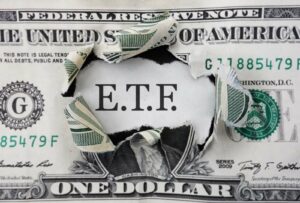Note: This is an excerpt of our Analytic Dossier of Rep. Buchanan.
The full dossier is available to our subscribers.
Summary
Representative Buchanan was elected to Congress in 2006. His district is situated in central, western Florida and includes Bradenton and Sarasota. In July of 2012, Rep. Buchanan was cleared of charges that he violated House rules by intentionally misleading Congress regarding his financial disclosures. As of 2018, Roll Call estimates his net worth at $73.9 million.
Recent Activity
In early January of this year Rep. Buchanan sold between $1,500,000 and $3,750,000 of state and corporate bonds. Because such bonds are higher-yield and their interest is generally paid from either general state revenues or the revenues of the project they fund, a shift from such high-yield bonds to cash would generally be considered a defensive portfolio adjustment. Representative Buchanan has a history of buying and selling municipal bonds, conducting dozens of such transactions per year.
Given his high net worth, this level of activity in high-yield bonds is not, by itself, unusual. What makes these transactions worth noting is that, despite liquidating between 2% and 6% of his net worth, Buchanan has not filed counterbalancing purchases. This is unlike 2019, when Buchanan appears to have immediately rolled his bond portfolio into a new series of bonds. Such structured bond portfolios are often called a “ladder” and are “rolled over” at regular intervals in the secondary market. We have therefore flagged this series of transactions as a defensive liquidation. The value of such bonds would be expected to decline in the event of an economic decline affecting the revenues of the entities backing them.
Of small note is that several of the bonds sold were scheduled to come to maturity in mid-2020. Instead of letting them mature and return face value, Buchanan chose to liquidate them. Of course, in a stable interest rate and economic environment with well-functioning markets, the decision to liquidate versus hold to maturity should be financially identical. Early liquidation, on the other hand, will prove a superior strategy in a declining environment if there is an increased likelihood of default. For more details on the transactions, you can review these disclosures at the House Office of the Clerk.
Recent Transactions
2020
- 01/07/20 – sold between $1.5 million and $3.8 million in state and corporate bonds.
2019
- 01/31/19 through 11/18/19 – sold between $900,000 and $2.25 million in state and corporate bonds.
- 01/15/19 through 11/19/19 – purchased between $900,000 and $2.25 million in state and corporate bonds.
Note: Most bonds had a coupon rate of ~5% and matured between 2020 and 2023.
Notable Assignments
Rep. Buchanan serves on the House Committee on Ways and Means. In that role, he also serves on the subcommittees for Trade (where he is the Republican Leader) and Health.





